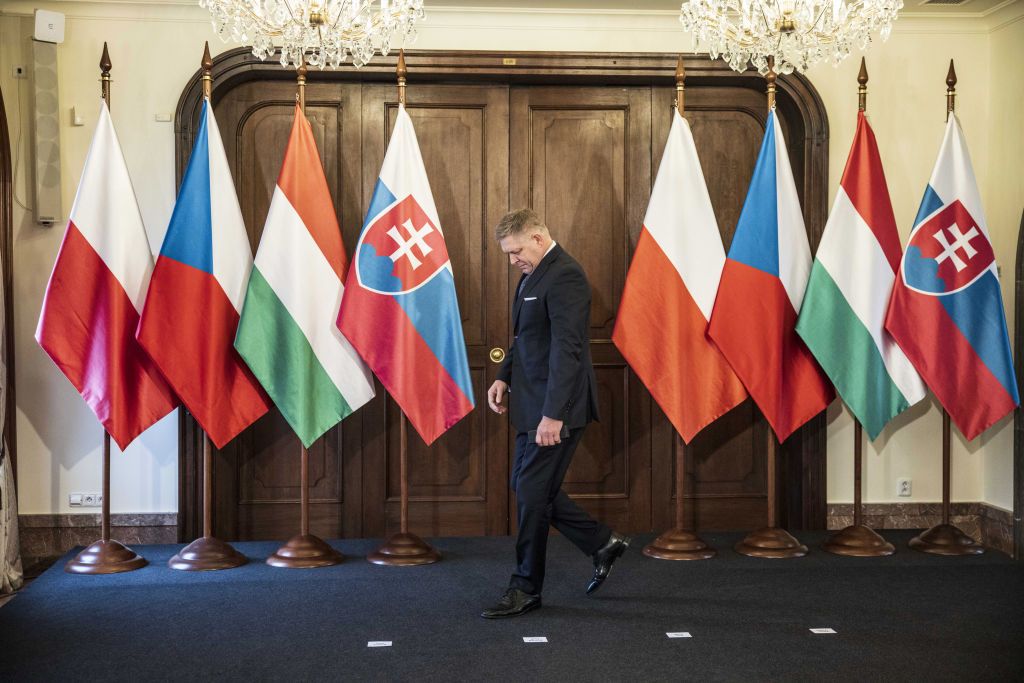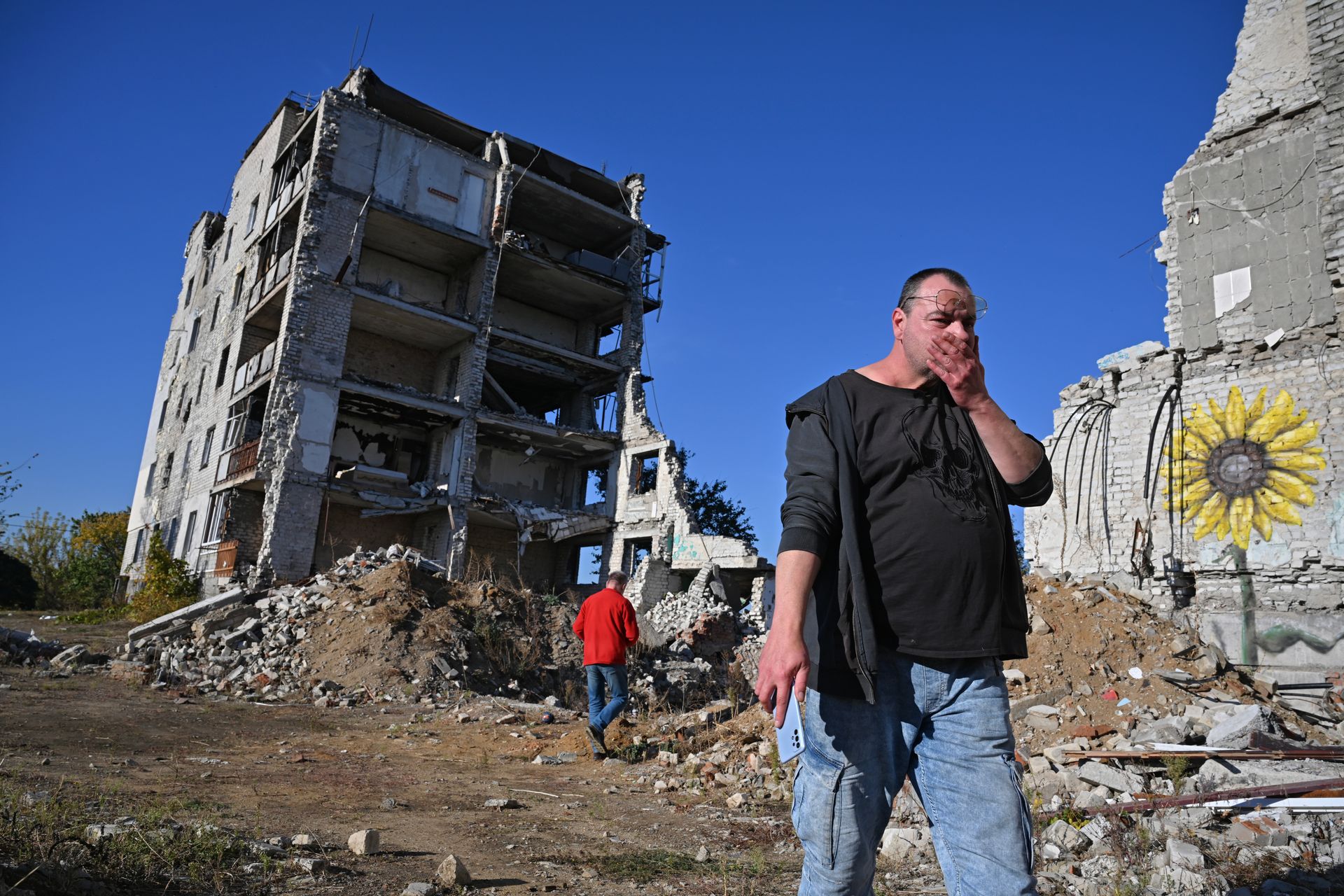Czechia's 2025 general election: All you need to know

Andrej Babiš (L), leader of the Czech Republic’s Ano party, and Czech Prime Minister Petr Fiala (R), leader of the Civic Democratic Party (ODS) and the Together (SPOLU) coalition, shake hands at the CNN Prima TV studio ahead of an election debate in Prague, Czech Republic, on Oct. 1, 2025. (Michal Cizek / AFP via Getty Images)

Adam Sybera
As Czechs prepare to vote, the anticipated supremacy of the right-wing populist Ano (Yes) movement extends well beyond Prague.
Oligarch Andrej Babiš and his political project are already influential in the broader dynamics of Central European politics and Ukraine's strategic considerations. However, multiple actors hold the levers of regional stability.
Here's what hangs in the balance in the upcoming general election set for Oct 3-4.
According to the latest poll, Babiš's Ano (Yes) leads with around 30%, well ahead of the governing pro-Ukraine Spolu (Together) bloc, which is eyeing 18% in the upcoming vote. Far-right Freedom and Direct Democracy (SPD) lingers at 13%, Mayors and Independents (STAN) at 12% and Pirates and Greens hovering around 9%.
Just above the 5% threshold is the far-left Stačilo (Enough) and another far-right party, Motorists for themselves, with 7% each.
In practice, this would mean 66 seats out of 200 for Ano, 38 for Spolu, 26 for SPD, 23 for STAN, the Pirates and Greens coalition are there to take 19, while Stačilo and Motorists would gain 13-15 depending on the final count and if they end up making it into the parliament.
Bear in mind that even that fact is consequential.
Who makes it into parliament determines the range of coalition options the winner can explore.
For the current front-runner, every party that clears the threshold provides variety to either flirt with political pragmatism or embrace national populism.

Before digging deeper, here is the cast of players:
Ano — The front-runner remains former Prime Minister Babiš, a "wild-nineties" oligarch sitting on a $4.4 billion fortune and running the populist catch-all party. Ano is expected to win and grab the first shot at forming the next government — a familiar story of money and media triumph.
The party has previously flirted with Russia and is opposed to providing Ukraine any assistance or welcoming it into the EU.
Spolu — a three-party mashup of ODS (conservative right), KDU-ČSL (Christian democrats), and TOP09 (center-right), led by current Prime Minister Petr Fiala.
All three worship mildly Euro-skeptic, "business-friendly" orthodoxy. Scattered by corruption scandals and polling about ten points lower than four years ago, they insist they're the only real counterweight to Babiš.
SPD — A firmly anti-EU and anti-NATO far-right party that feeds on beer-hall racism, outrage, and anti-system theatrics. Always eager to posture, they're open to a coalition if it suits them, but just as happy grumbling in opposition.
STAN — Liberal centrist and part of the current government, they ran a campaign around reasoning with the common folk while keeping their elite-savvy bones intact. Pro-EU, pro-NATO, and painfully cautious, STAN's agenda is basically "don't annoy anyone too much."
Pirates and Greens — Once a formidable force, now a political punching bag, they are staying afloat by rebranding as a moderate, democratic alternative.
Their campaign mostly appeals to voters who want pro-EU credentials without embracing anything "too radical" — or effective.
Stačilo — It bills itself as a protest movement, but its ranks are filled by ex-Communists, who now frequently share the stage with those from the far-right. Their messaging drifts into national populism and conspiracy-friendly tropes, questioning EU and NATO membership while echoing Russian disinformation.
Motorists for themselves — A 2022 creation, this right-wing, manosphere money club worships cars as a stand-in for personal freedom, rails against "leftist progressives," and describes the EU as the new dictatorship.
Other than rejecting the euro, the Green Deal, and support for Ukraine, their program doesn't offer much more.

Electoral aftermath
Three scenarios dominate the horizon.
In the first one, Babiš joins forces with the far-right and one (or both) protest movements. Heavy euro-skepticism, anti-NATO rhetoric, and selective (if any) support for Ukraine eventually take over as policy-defining.
In this scenario, Czechia cements itself in the populist bloc, obstructing coordinated EU policy on Russia and diminishing advocacy of Kyiv in Central Europe to basically zero.
The second and increasingly unlikely scenario is where the center-right pulls a miracle and Spolu, STAN, and the Pirate and Green coalition stage a political revival and a relationship reset.
In this scenario, Czechia remains conservative without any major changes to its current pro-European and pro-NATO foreign policy, while military aid to Ukraine continues, along with the consensus on sanctions toward Russia.
Note that this only happens if Ano does not win or fails to form a government.
Then there is the wild-card, and for many insiders, a not-so-unrealistic possibility of a pragmatic ANO-Spolu government. Both parties would have to "betray" their voters, but they have been relatively consistent in doing so, so why not?
Together, they could combine neo-conservative domestic governance with just enough pro-European signals to keep Brussels moderately reassured.
For the Central European oligarchy, this setup is tantalizing. Flexible, but also predictable for the big boys in business, and able to pivot quickly towards populist priorities when convenient.
Ukraine would still receive support. However, intensity and reliability would likely fluctuate, with Ukraine's weakest — its refugees in Czechia — being left to bear the consequences. In this scenario, domestic calculations will always outweigh the principle.
Czechia's 2025 election, then, is less a contest of ideas than a negotiation of convenience.
ANO's lead is almost preordained by money, media reach, and oligarchic influence, leaving the promise of "democracy" as little more than procedural. Election math will determine policy more than ideology. Pragmatism, populism, and selective European loyalty will all be on the table, while principled stances — especially on Ukraine and regional security — risk being subordinated to short-term domestic gains.













